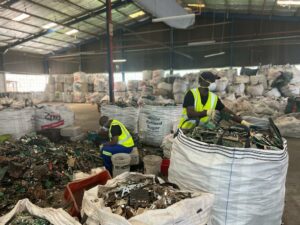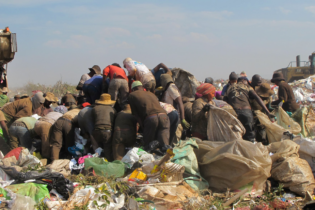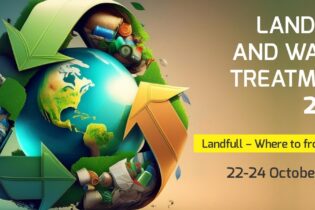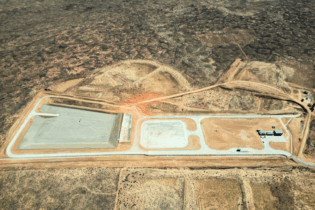The University of Johannesburg and the Department of Electronic Administrations are in preparations to implement an e-waste management system on a project designed to improve electronic waste recycling and disposal.
The project located in the Gauteng province was launched on the 1st of March 2022 and aims to tackle the increasing issues of e-waste management in Johannesburg and Pretoria. According to the United Nations’ Global e-waste Monitor report, approximately 360,000 tons of e-waste is generated annually in South Africa, and Gauteng is responsible for about 55% of it since it is the economic center of the country. Residents are set to recycle or safely destroy products such as home appliances, cell phones, and computers. Business manager of the Waste Electrical and Electronic Equipment Centre, Simone Andersson says, “When we see that an e-waste is not reusable, we dismantle it down to its smallest components, and the different metals are sent to different local dealers who melt the metal, recycle it and reuse it.” The importance of e-waste recycling plant The e-waste recycling plant will contribute to stimulating South Africa’s economy by assisting with job creation in smaller sectors. Reports by the International Solid Waste Association (ISWA) reveal that South Africa’s informal sector has approximately 90,000 waste pickers who assist with the collection of recyclables.An international waste congress will be hosted in Cape Town where demonstrations of waste management technologies and technical tours of South African waste management facilities will be highlighted. As well as the construction of nine waste disposal facilities that are currently underway in the Western Cape province.
“This collaboration is envisioned to unlock solutions that not only address issues such as e-waste but also create a value chain that speaks to SMMEs and the informal sector through the creation of a circular economy,” said Professor Saurabh Sinha, Deputy Vice-Chancellor: Research and Internationalisation. “The 4IR, which is fundamentally shifting every aspect of society through intelligent technologies, has been touted as the key to finding solutions to many of our deep-seated issues. Simply put, the digitisation of government speaks to the implementation and development of urban services through the use of digital technology, which is a representation of 4IR in action,” added. Gauteng Premier Mr. David Makhura praised the contribution that technology has had in simplifying the lives of most of every citizen in the country, “This mounting e-waste problem is an opportunity for us to bring in new players to deal with the environmental problem by having a different approach to it and bringing in young people,” he concluded.





